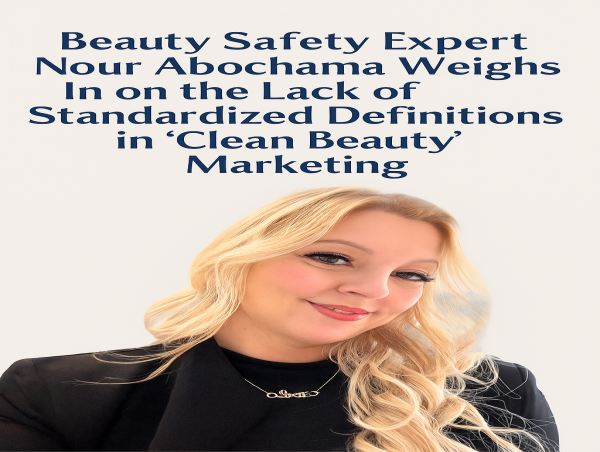Abochama, Vice President of Operations at Qalitex Laboratories and a former lab director with extensive experience preparing laboratories for FDA and Health Canada inspections, has spent decades working in quality systems and regulatory compliance for cosmetics and personal care products. She says that although many brands use “clean” to suggest safety, sustainability, or ethical sourcing, there are no federal standards governing its use.
“It’s important to understand that these terms carry no regulatory weight in the U.S.,” Abochama said. “A brand can label a product as ‘clean’ without having to meet any specific safety threshold or disclose what criteria they’re using. That leaves room for broad interpretation and a lot of confusion.”
Popular but Undefined
According to the U.S. Food and Drug Administration (FDA), the agency does not currently define or regulate the term “clean” as it relates to cosmetics. Similarly, labels such as “non-toxic,” “green,” “chemical-free,” or “natural” do not have standardized definitions enforced by the FDA or the Federal Trade Commission (FTC), unless they are found to be deceptive in context. In practice, this means brands are free to create their own definitions, and unless tied to third-party certifications, these claims are largely self-governed.
This ambiguity has allowed the rise of parallel “clean beauty” standards set by retailers like Sephora, Ulta, and Credo Beauty, each with their own evolving lists of banned ingredients. But for the average consumer, the distinction between retail policy, brand marketing, and scientific validation is often unclear.
Abochama notes that many of these claims are used in good faith but without the technical documentation to support them.
“A claim like ‘non-toxic’ may sound reassuring, but unless it's backed by toxicological data, it’s just a statement,” she said. “In regulatory terms, it’s not enough to say a product is safe. You need documentation to prove it—safety assessments, formulation rationale, and ingredient traceability. That’s what’s missing in many cases.”
A Background in Regulatory Rigor
Nour Abochama is uniquely positioned to speak to this issue. She holds a master’s degree in biomedical engineering from Grenoble INP – Ense3 and has built her career in laboratory operations across North America. She has led quality control programs, reviewed safety documentation, and helped multiple laboratories prepare for FDA and Health Canada inspections. Her experience spans the lifecycle of product testing, from raw ingredient verification to compliance audits.
She currently oversees operational and quality systems at Qalitex, a laboratory services firm based in Irvine, California. In addition to her lab and regulatory work, she also serves as Executive Producer and co-host of the science-focused podcast Nourify and Beautify, where she and co-host Linda Yates interview industry professionals about transparency and safety in the beauty sector.
While her podcast brings these conversations to a public audience, Abochama’s concern over vague marketing claims stems from the documentation she’s reviewed—or found lacking—inside real labs and manufacturing facilities.
What MoCRA Does—and Doesn’t—Cover
The U.S. cosmetic industry is currently undergoing its most significant regulatory overhaul in decades through the Modernization of Cosmetics Regulation Act (MoCRA), passed in December 2022. MoCRA requires cosmetic manufacturers to register products with the FDA, report adverse events, and maintain records to substantiate product safety. It also mandates the disclosure of certain fragrance allergens and gives the FDA recall authority.
However, MoCRA does not define or regulate the use of marketing terms like “clean,” “non-toxic,” or “chemical-free.” That gap leaves a large portion of consumer-facing language untouched by federal oversight.
“MoCRA is a step forward—it brings accountability to things like registration and reporting,” Abochama said. “But it doesn’t touch how these everyday claims are used on packaging and in ads. That’s still a gray area.”
The Role of Third-Party Standards
In the absence of federal definitions, some brands voluntarily seek third-party certifications to support their marketing claims. These may include labels for cruelty-free practices, organic ingredients, or avoidance of specific chemicals. Yet not all third-party standards are equal, and none are legally required.
Some industry groups have called for clearer guidance or harmonization of standards, but until then, terms like “clean” remain largely up to the interpretation of marketers and consumers.
Abochama emphasizes that brands interested in building long-term trust should take internal documentation seriously—even when regulations don’t require it.
“We encourage brands to back their claims with clear criteria and internal review,” she said. “That doesn’t mean chasing perfection, but it does mean having a consistent, traceable process for how product decisions are made.”
Why This Matters
The use of terms like “clean” and “non-toxic” can shape consumer behavior, especially among individuals with sensitivities, allergies, or health concerns. A 2023 survey found that 63% of shoppers consider clean beauty ‘extremely or very important’ when making a purchase decision—despite lacking clarity about what the term means.
Without standardization, the burden of interpretation falls on the consumer—a dynamic Abochama believes can be improved through education and documentation, not just marketing.
“Transparency doesn’t have to be complicated,” she said. “It starts with sharing how a product is made, what ingredients are in it, and what standards—if any—were used to evaluate its safety. That’s where real trust comes from.”
About Nour Abochama
Nour Abochama is a chemical engineer and Vice President of Operations at Qalitex, a laboratory services company specializing in product quality systems. She previously served as Director of Quality at American Testing Labs and Labofine, where she led regulatory compliance efforts related to FDA and Health Canada. Nour also co-hosts Nourify and Beautify, a podcast focused on safety, science, and transparency in beauty.
Nour Abochama
Qalitex Laboratories
email us here
Visit us on social media:
LinkedIn
Instagram
Facebook
Legal Disclaimer:
EIN Presswire provides this news content "as is" without warranty of any kind. We do not accept any responsibility or liability for the accuracy, content, images, videos, licenses, completeness, legality, or reliability of the information contained in this article. If you have any complaints or copyright issues related to this article, kindly contact the author above.
![]()





